Just In
- 3 hrs ago

- 4 hrs ago

- 7 hrs ago

- 7 hrs ago

Don't Miss
- News
 US: Biden Faces Hypocrisy Accusations After Signing TikTok Ban Bill, Critics Call For Campaign Account Deletio
US: Biden Faces Hypocrisy Accusations After Signing TikTok Ban Bill, Critics Call For Campaign Account Deletio - Sports
 Kavya Maran: All You Need To Know - Personal Life, Net Worth, Educational Background And Others
Kavya Maran: All You Need To Know - Personal Life, Net Worth, Educational Background And Others - Movies
 Arti Singh Wedding: Krushna Abhishek Gives Dipak Tips For Happy Married Life In Govinda Style; WATCH
Arti Singh Wedding: Krushna Abhishek Gives Dipak Tips For Happy Married Life In Govinda Style; WATCH - Technology
 Elon Musk’s X Is Launching a TV App Similar to YouTube for Watching Videos
Elon Musk’s X Is Launching a TV App Similar to YouTube for Watching Videos - Education
 AICTE introduces career portal for 3 million students, offering fully-sponsored trip to Silicon Valley
AICTE introduces career portal for 3 million students, offering fully-sponsored trip to Silicon Valley - Finance
 Rs 7.50/Share Dividend: Adani Group Cement Company Reports Strong Q4 Results; Profit Surges 2x YoY
Rs 7.50/Share Dividend: Adani Group Cement Company Reports Strong Q4 Results; Profit Surges 2x YoY - Automobiles
 Bajaj To Offer Chetak Electric Scooter At Lower Price Point: All Details Here
Bajaj To Offer Chetak Electric Scooter At Lower Price Point: All Details Here - Travel
 Escape to Kalimpong, Gangtok, and Darjeeling with IRCTC's Tour Package; Check Itinerary
Escape to Kalimpong, Gangtok, and Darjeeling with IRCTC's Tour Package; Check Itinerary
13 Signs That Stress Is Killing You
Stress is no longer considered a grave condition but a part of daily life. Stress can take a toll on your health both mentally and physically. Most often we tend to dismiss signs of stress as minor problems. We say 'its just stress'. But the symptoms of stress are not minor at all and can accumulate quietly, turning into serious health problems.

80 per cent of the world's population has reported experiencing stress daily. Many in the age group of 15-25 report to needing help with managing stress [1]. In a way, stress can help you meet challenges and stay focused, alert, and energetic when at a healthy level but, when it crosses the threshold, it can result in anxiety, restlessness, headaches, chest pain, depression, loss of sexual desire, fatigue, anger, etc.
In the current article, we will look at how stress can affect your physical health.
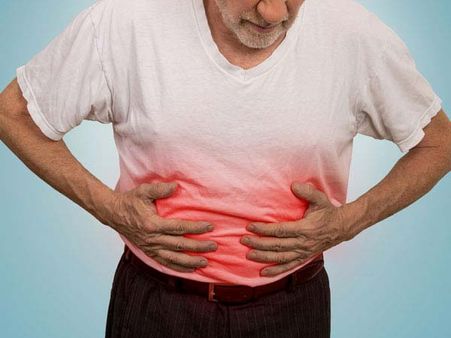
1. Digestive Issues
Stress affects how food moves through your body which could cause constipation, diarrhoea, vomiting, tummy aches, nausea, etc. The rapid breathing, increased heart rate, and surge in hormones could affect your digestive juice production, increasing your chances of heartburn and acidity [2].
Also, when under stress, your liver is pushed to break down more sugar, which can cause high blood sugar levels and if this crosses a certain level you could start suffering from diabetes [3].

2. Weight Gain
Stress releases a hormone in your body called cortisol which can decrease the rate of metabolism and results in unhealthy weight gain [4]. Stress can also cause you to eat more, causing a craving for foods that have high-calorie content [5].

3. Increased Risk Of Heart Attack & Stroke
Stress has a devastating effect on your heart health. A study has shown that it increases the risk of heart attack by 30 per cent and also decreases the chances of survival after a heart attack [6]. Likewise, stress causes your heart rate to shoot up and more blood to be pumped through the body to supply enough oxygen to cells to keep up with the spiking action [7].
Your muscles and brain cells require more oxygen to process, leading to high blood pressure, which in turn increases your risk of getting a stroke [8].
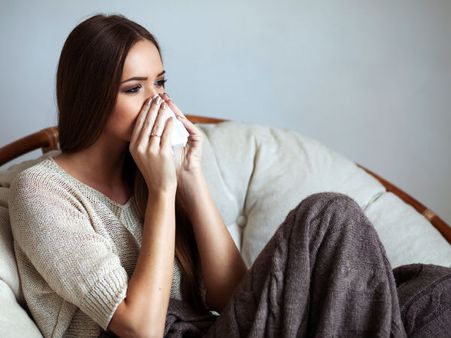
4. Low Immunity
People who are continuously under stress are more prone to common colds and flu. Stress hormones weaken the immune system and also reduce its ability to respond quickly. You can also see that the body takes more time and energy to recover from illnesses [9].

5. Loss Of Libido
When you are stressed, your body releases hormones such as cortisol and epinephrine which (in high levels) can cause decreased sex drive [10]. And if your stress is chronic, it will cause changes in the cortisol levels and impact the sex hormones [11].
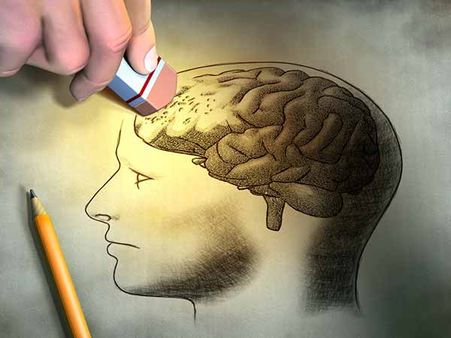
6. Weak Memory
Long term stress can decrease the ability of the brain to remember things and to retain information [12]. Stress can affect both long-term and short term memory and disrupt your daily activities.
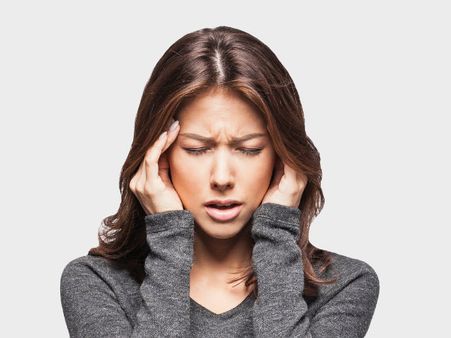
7. Headache
Stress and headaches are inter-linked. Stress can cause headache and a headache can make you stressed. High levels of stress can make the blood vessels in your brain throb, causing sharp pain and irritation [13]. Stress can also cause chest pain and body ache.

8. Nose Bleeds
This is reported in people with extreme high cases of stress. Nose bleeds can happen when your blood pressure rises suddenly without warning. The body's natural defence mechanism is to let out some blood to control your blood pressure [14], thereby causing nose bleeds.

9. Muscle Stress
When stressed, your muscles are tensed leading to headaches, joint injuries, muscular spasms, back pain, shoulder pain, or full-body aches [15]. It is not advisable to exercise when your muscles are in pain.

10. Irregular Periods
Studies point out that stress is one of the most common causes of irregular periods in women [16]. Your body's reaction to stress includes changes in the levels of many hormones and affects the balance [17]. Apart from this, the psychological stress can also interfere with your menstrual cycle [18].
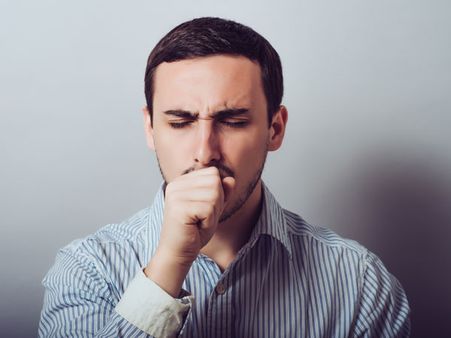
11. Affects Respiratory System
Stress hormones cause havoc in your respiratory system. It can cause rapid breathing as more oxygen-rich blood needs to be transported through the body. If you already suffer from a breathing condition, the symptoms could exacerbate [19].

12. Hair Loss
Stress can cause hair loss, not just one, but three different types of hair loss [20]. Telogen effluvium, trichotillomania and alopecia areata are the types. Hair loss caused by stress is usually only temporary [21]. Stress can also cause premature greying.

13. Acne
Stress causes the body to releases a hormone called glucocorticoid which causes acne, pimples, wrinkles and even eczema [22]. While stress alone isn't the cause of acne, studies have pointed out that stress can trigger breakouts and make existing acne issues worse [23].

On A Final Note…
Stress can affect your health in several ways. Often people are not aware of the physical impact it can have on one's body. There's no shame or guilt in reaching out for help. Tune into your body and understand its requirement.

Frequently Asked Questions
Q. What are 5 emotional signs of stress?
A. Irritability, decreased desire to have sex, compulsive behaviour, mood swings and anxiety.
Q. What can stress do to a woman's body?
A. Stress increases the amount of a hormone in your body called cortisol, which can lead to overeating and cause your body to store fat and can cause problems when it comes to conceiving.
Q. What organs are affected by stress?
A. Each and every organ in your body can get affected by stress.
Q. How does mental stress affect the body?
A. Chronic stress increases the risk of developing depression and anxiety in some people.
-
 healthIs Office Stress Messing With Your Health? 5 Red Flags You Can't Ignore!
healthIs Office Stress Messing With Your Health? 5 Red Flags You Can't Ignore! -
 healthMental Health: Five Crucial Tips Every Stressed Out Student Should Know!
healthMental Health: Five Crucial Tips Every Stressed Out Student Should Know! -
 healthWorld Heart Day: 5 Habits That Can Improve Heart Health Other Than Exercise And Diet
healthWorld Heart Day: 5 Habits That Can Improve Heart Health Other Than Exercise And Diet -
 healthGain Control of Your Stress and Guard Your Heart!
healthGain Control of Your Stress and Guard Your Heart! -
 healthUnlock the Magical Stress-Busting Power of Indian Spices and Herbs
healthUnlock the Magical Stress-Busting Power of Indian Spices and Herbs -
 healthDid You Know That Chronic Stress Can Affect Menstruation And Vice Versa?
healthDid You Know That Chronic Stress Can Affect Menstruation And Vice Versa? -
 healthScented Wellness: Unraveling Aromatherapy's Powerful Healing Benefits
healthScented Wellness: Unraveling Aromatherapy's Powerful Healing Benefits -
 healthOnam Work-Life Balance: 5 Expert Tips To Enjoy The Festival Stress-Free
healthOnam Work-Life Balance: 5 Expert Tips To Enjoy The Festival Stress-Free -
 healthFrom Mind To Gut: The Surprising Connection Between Stress And Digestion
healthFrom Mind To Gut: The Surprising Connection Between Stress And Digestion -
 beautyHair Loss From Stress? Try These Ayurvedic Remedies
beautyHair Loss From Stress? Try These Ayurvedic Remedies -
 healthPTSD Day: 4 Common Causes Of Post Traumatic Stress Disorder
healthPTSD Day: 4 Common Causes Of Post Traumatic Stress Disorder -
 healthFeeling Anxious And Jittery? Avoid These Foods When You Are Stressed!
healthFeeling Anxious And Jittery? Avoid These Foods When You Are Stressed!


 Click it and Unblock the Notifications
Click it and Unblock the Notifications



